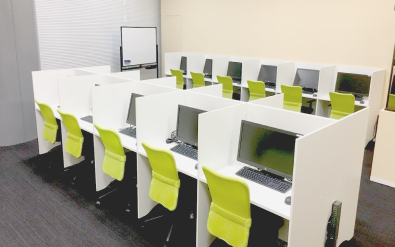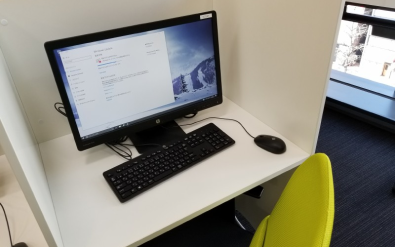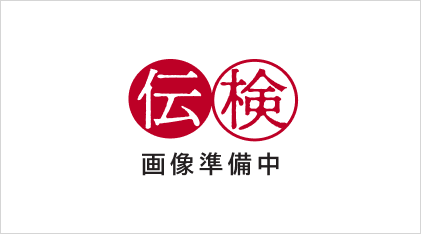
What is DENKEN-TEST
Learn about Japanese traditional culture in a comprehensive way, Discover the “Values of Japan" that fascinate the world. Communicating the wonders of Japan, Enjoy incorporating the culture into my daily life.
We will learn more about Japanese traditional culture, not just its history, form and techniques, but also its inner value,and through that, we will reexamine the state of our culture today.
What becomes clear from this is the “value of Japan" in the world.
We will present what Japan must not lose and an important perspective to consider when thinking about Japan's future.
Japanese culture is recognized as a World Heritage Site and an Intangible Cultural Heritage, and is attracting a lot of attention from around the world.
From its roots, which even Japanese people are surprisingly unaware of, to its relationships with other cultures and differences, You will learn about Japanese traditional culture across a wide range of genres, including crafts, architecture, food culture, and performing arts.
The Scope of Learning and Questions
8 Genres of Crafts and Culture
You will learn extensively and in detail about the techniques and beauty that have been handed down in Japan since ancient times using Official Textbook.
We will also provide an overview of the main traditional crafts designated by the national and prefectural governments.
Whether you are familiar with traditional culture on a regular basis or are learning about it for the first time, you are sure to make some new discoveries.
-
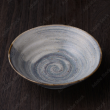
Ceramics/Glass
Learn about the history, culture, and characteristics of each production area of ceramics and glass, which combine practicality and beauty.
Ceramics and glass are not just vessels, but they continue to exist in our daily lives as expressions of the aesthetic sense and spirituality of the Japanese people. Learn about the history and characteristics of ceramics from various regions that inherit traditional Japanese techniques.
-
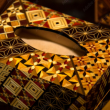
Metalwork/Wood Lacquerware
Learn about metalwork and wood lacquerwork, which developed alongside the introduction of Buddhism and supported Japanese architecture and tea ceremony culture
With the introduction of Buddhist culture, techniques and materials were developed, and later, metalwork and wood lacquer work developed with the development of aristocratic and samurai society, and many crafts are produced in these crafts, from traditional architecture to works of art and everyday items. Students will learn about the characteristics of these materials, their production areas, history, and how to use them.
-
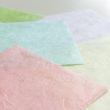
Japanese Paper/Dyed Textiles
Learn about the world-renowned traditional Japanese material “Washi Paper" and the "Dyeing and Weaving" techniques from all over Japan that support kimono culture
In addition to being used as writing paper, Washi paper is also used in a variety of other things, such as architectural materials for sliding doors and lighting, as well as folding fans and kaishi paper. You will also learn about the dyeing and weaving that underpins the culture of kimono, Japan's national costume, and the history and characteristics of each production area, as well as how to use it in accordance with the seasons and lifestyles.
-
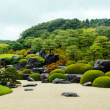
Architecture, Gardens and Art
Learn about the beauty of Japanese gardens, traditional architectural techniques, culture, art styles of each era, and even artworks and viewing facilities
You will learn about the historical background and ways to enjoy Japanese gardens that are beautiful in every season, traditional architecture that highlights the craftsmanship of artisans, the Zen philosophy seen in “Karesansui" (Dry Landscape Gardens), and ukiyo-e that has influenced artists around the world, as well as cultural heritage, tourist attractions, art museums, and more.
-
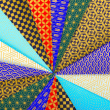
Traditional Colors and Patterns
Learn about Japanese sensibilities through “Traditional Colors" and “Patterns" written in beautiful Japanese and each with its own meaning
In Japan, where we have four seasons, the Japanese people live surrounded by a wealth of colors. There are color names that are born from traditional products and nature, and even auspicious patterns have meanings. In addition to these colors and patterns, you will learn about the beautiful sensibilities of the Japanese people that are embedded in them.
-
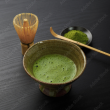
Tea Ceremony/ Japanese Sweets/ Matcha
Learn about the “Wabi-Sabi" philosophy perfected by Rikyu, the history and etiquette of the tea ceremony, and the “Spirit of Hospitality" of Japanese sweets and tea.
“A delicious cup of tea". The tea ceremony has been refined over many years, and in the process, the Japanese view of nature and aesthetic sense have been passed down. In addition to the beautiful Japanese sweets of each season and the beauty of tea utensils, you will learn about the “Spirit of Hospitality" that Sen No Rikyu preached and is deeply rooted in the hearts of Japanese people.
-
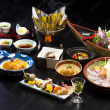
Foods/Yearbook
“Japanese Cuisine" has been registered as an intangible cultural heritage by UNESCO. Learn about the “Seasonal Calendar" of Japan's traditional seasonal events.
Japan, a country surrounded by the sea and with four seasons, is said to have had its own unique food culture since the Heian period. Students will learn about seasonal events such as New Year's and festivals, as well as the development and history of Japanese food culture, its origins, customs, etiquette, and other aspects of the refined Japanese spirit and etiquette that are so necessary in this age of globalization.
-
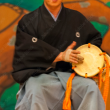
Entertainment
Japan's three major classical performing arts: Kabuki, Bunraku, and Noh. Learn about the history, stage, costumes, and how to enjoy them.
Registered as an intangible cultural heritage by UNESCO, Japan's three major classical performing arts, Kabuki, Bunraku, and Noh, are also popular overseas. Their sophisticated and unique stylized beauty has influenced modern theater. Learn about the characteristics, origins, and history of each, as well as the stage and costumes, and the plot and highlights of the main performances.
The Levels and Contents of DENKEN-TEST
The certification exam “DENKEN-TEST” consists of three levels: 3rd Grade, 2nd Grade, and 1st Grade.
It will satisfy your desire to learn more about Japanese traditional culture.

検定合格者に「認定証」発行
協力施設などでの特典サービス
Those who pass the test will be issued a certificate and given a title according to their level. In addition, we will be offering commemorative goods for passing the exam (available for a fee) and special services at cooperating facilities (more on this in the future).
What is CBT
CBT is an abbreviation for “Computer Based Testing" and refers to an examination method that uses a computer.
* DENKEN-TEST uses the CBT testing service provided by CBT Solutions, Inc.
CBT Exam Features
- ① Candidates can take the exam at any time during the exam period.
- ②You can choose a test center close to your home or workplace to take the exam.
(There are more than 300 test centers in all 47 prefectures, the largest number in the country.) - ③Even if you have a sudden change of plans, you can change the date, time or venue up until three days before the exam date.
(This change will occur within the same exam session.) - ④You will know the result immediately after the exam, very little time to wait for the results.
